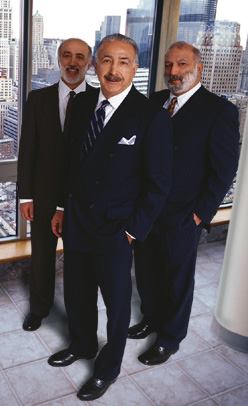“We’re very fortunate in a way that we’ve been conservative financially,” says T. Elghanayan. “We’ve actually built up a large war chest of money so when things are bad we could feed [projects].”
And after the tragedy of Sept. 11th, having that built up reserve was never more important to the success of the company.
After Sept. 11th, cleaning up and offering rent reductions weren’t always incentive enough to gets its residents back into their homes.
Teamwork The company joined forces with other owners and developers to help bring back conveniences to the neighborhood. For example, the company lobbied for stores to reopen, so residents would have access to goods and services.
Another program in which the company took part was providing a shuttle bus to transport residents in and out of the area. With part of West Side Highway still closed and the subway not running through downtown, access to Battery Park City was essentially cut off. “There were constant meetings with the Real Estate Board of New York, the Battery Park City Authority, The Alliance for Downtown New York and other owners,” explains T. Elghanayan.
The group also decided to stop billing its residents for the Battery Park City Civic Facility, because they didn’t have access to the park.
Forward Motion With vacancies up and rents down, Rockrose needed to find a way to get people to move into its apartments.
The company decided to have its leasing offices stay open until 7 p.m. during the week and to open on the weekends, says Sofia Estevez, vice president of marketing. The company also reduced rents for new residents, giving up to one month free as a concession. In addition, the company will pay the broker commission – up to one month’s rent. The properties are slowly leasing their vacant units.
Rockrose also increased its level of customer service. “Residents have asked for more testing and cleaning to be done, and we did it,” she explains. “If they call us and tell us ‘we want you to sweep our floor,’ we send somebody up to sweep the floor. Some of them have been pushing the limit, but we are trying to accommodate them in every possible way.”
While the company is still trying to put the pieces together, it has taken the opportunity to learn from the tragedy. “One of the greatest lessons I learned is the importance of teamwork,” says T. Elghanayan. “The other thing is the importance of becoming proactive: Contact the residents, speak with the residents, find out their concerns, and fix whatever is wrong.”
